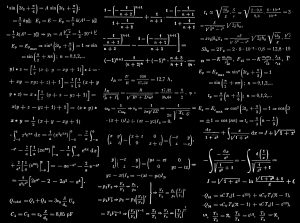What is the Relationship Between Abacus and Mental Maths?

Introduction
Mental math has always been a topic of concern for parents. Many children struggle with calculations, finding it difficult to perform arithmetic operations without relying on pen and paper or a calculator. But what if we told you that there is a solution that can help your child develop strong mental math abilities? The answer lies in the relationship between abacus and mental maths.
Abacus training is a proven method for enhancing calculation skills and improving overall cognitive abilities in children. In this article, we will explore the connection between abacus and mental maths, understanding how abacus serves as both a foundation and a bridge to advanced mental calculation abilities. We will dive into the benefits of abacus training, providing practical tips on how to improve math skills through abacus and mental arithmetic techniques.
So, let’s embark on this journey of unlocking your child’s mathematical potential!
The Foundation: Understanding What an Abacus Is
To comprehend the relationship between abacus and mental maths, it is important to first understand what an abacus is. An abacus is a physical tool used for mathematical calculations. It consists of rods or wires with beads that can be moved back and forth.
The abacus has a long-standing history, with its origins dating back thousands of years. It has been used as a calculating device in various cultures across the world. In fact, different types of abacuses exist, such as the Chinese, Japanese, and Russian abacuses, each with their own unique design and calculation methods.
The abacus serves as a visual aid that helps children visualize mathematical operations. It provides a tangible representation of numbers, making abstract concepts concrete. This tactile and visual approach to understanding numbers lays a strong foundation for mental maths.
Building Mental Calculation Skills: The Role of Abacus
Abacus training starts with hands-on calculations using the physical tool. Students learn to manipulate the beads on the abacus to perform arithmetic operations. Through consistent practice, they develop a deep understanding of numbers and mathematical concepts.
As learners become proficient with the physical abacus, they naturally transition into mental abacus. Mental abacus is the ability to perform calculations without any physical aid, solely by visualizing the abacus in one’s mind. This process enhances mental calculation speed and accuracy.
The transition from physical abacus to mental abacus is gradual and requires practice. Initially, students may need to visualize the abacus and mentally move the beads to perform calculations. Over time, this visualization becomes more automatic and effortless, allowing for quick mental calculations. With continued practice, students can perform complex calculations in their minds with ease.
Cognitive Benefits of Abacus Training
Abacus training not only improves calculation skills but also offers numerous cognitive benefits. Let’s explore some of them:
Enhanced Calculation Skills: Regular practice with the abacus sharpens mental calculation abilities. Students develop the ability to perform calculations quickly, accurately, and efficiently, without relying on external aids.
Improved Concentration and Memory: Using the abacus requires focus and concentration. As students manipulate the beads and visualize calculations, both hemispheres of the brain are stimulated. This stimulation leads to improved concentration, memory, and overall cognitive function.
Development of Analytical and Visual-Spatial Skills: Abacus training develops analytical thinking and visual-spatial processing, which are essential for advanced mental maths. Students learn to analyze problems and visualize solutions, honing their problem-solving skills.
Comparative Insights: Abacus vs. Mental Maths
To better understand the relationship between abacus and mental maths, let’s compare the two approaches:
Aspect Abacus Mental Maths
-
Approach Physical manipulation, then visualization Pure mental calculation, no physical aids
-
Foundation Builds tactile and visual understanding Relies on memory and number sense
-
Transition Leads to mental abacus (visualization) Builds on abacus or direct mental strategies
-
Benefits Improves memory, focus, analytical skills Enhances speed, efficiency, problem-solving
Summary
Abacus training is a proven method for developing mental maths skills. It starts with hands-on calculations and progresses to mental visualization, enabling learners to perform complex calculations in their minds with speed and accuracy.
Mental maths, especially when rooted in abacus training, is more than rote memorization; it is about visualizing and manipulating numbers mentally, often using the mental image of an abacus as a scaffold.
Combining abacus and mental maths offers the most comprehensive mathematical skillset, with the abacus building foundational understanding and mental maths providing speed and flexibility for everyday use.
Tips to Improve Math Skills Using Abacus and Mental Arithmetic Techniques
Now that we understand the relationship between abacus and mental maths, let’s explore some practical tips to improve math skills using these techniques:
Enroll your child in an abacus training program: Consider enrolling your child in an abacus training program like SIP Abacus. SIP Abacus India offers world-class skill development programs that aim to unlock the mental potential of children through fun learning methodologies. These programs use the abacus tool and visualization techniques to teach children mental math skills from ages 6-12. The structured curriculum, small class sizes, and interactive learning materials make the learning experience engaging and effective.
Practice mental calculations daily: Encourage your child to practice mental calculations on a daily basis. Start with simple additions and subtractions, gradually progressing to more complex calculations. Use real-life scenarios to make the practice relatable and practical.
Visualize the abacus: Teach your child to visualize the abacus in their mind while performing mental calculations. This visualization technique helps in developing mental abacus skills, allowing for faster and more accurate calculations.
Use mental strategies: In addition to the abacus, teach your child various mental strategies for calculations. These strategies could include breaking numbers into smaller parts, using patterns or shortcuts, or applying number sense to simplify calculations.
Make math fun: Incorporate games, puzzles, and challenges that involve math into your child’s daily routine. This will make learning math enjoyable and help strengthen their mathematical skills.
Here is a concise comparison table illustrating the relationship between Abacus and Mental Maths:
|
Feature/Aspect |
Abacus |
Mental Maths |
|---|---|---|
|
Definition |
A physical tool using beads to perform arithmetic visually |
Calculations done in the mind without any physical aid |
|
Learning Approach |
Visual and tactile; uses hand-eye coordination |
Relies on memory, visualization, and mental strategies |
|
Key Benefits |
Improves memory, focus, concentration, and problem-solving |
Sharpens calculation speed, critical thinking, and numeracy |
|
Skill Development |
Builds strong foundation in basic math concepts |
Develops intuitive understanding of numbers and operations |
|
Transition |
Leads to mental visualization of abacus (mental abacus) |
Uses mental images, patterns, and shortcuts |
|
Suitable For |
Beginners and visual learners |
Advanced learners and those comfortable with abstraction |
|
Best Use |
Mastering arithmetic operations and visualizing numbers |
Solving problems quickly without external tools |
|
Complementary Role |
Provides foundation and visual support for mental maths |
Builds on abacus skills for higher-level mental calculation |
This table highlights how abacus and mental maths complement each other in developing strong arithmetic and cognitive skills, with abacus serving as a stepping stone to advanced mental calculation abilities
Conclusion: Unlocking Your Child’s Mathematical Potential with Abacus
In conclusion, the relationship between abacus and mental maths is a powerful one. Abacus training provides a strong foundation for understanding numbers and arithmetic through tactile and visual means. It serves as a bridge to advanced mental calculation abilities by developing visualization skills.
Abacus training offers cognitive benefits such as improved concentration, memory, and analytical thinking. When combined with mental maths techniques, it enhances speed, efficiency, and problem-solving abilities.
By enrolling your child in an abacus training program like SIP Abacus India, you can provide them with the tools and techniques to unlock their mathematical potential. Studies have shown that children who complete the SIP Abacus program perform significantly better in math and reading at school, often 3-4 years ahead of their peers within 2 years of joining. The program’s unique approach of developing both sides of the brain has proven effective in nurturing children’s academic and overall growth.
So why wait? Start your child’s journey towards mastering mental maths today and witness the transformation in their mathematical abilities. Remember, the abacus is not just a calculation tool but a gateway to mastering mental maths through visualization, memory enhancement, and cognitive development.



